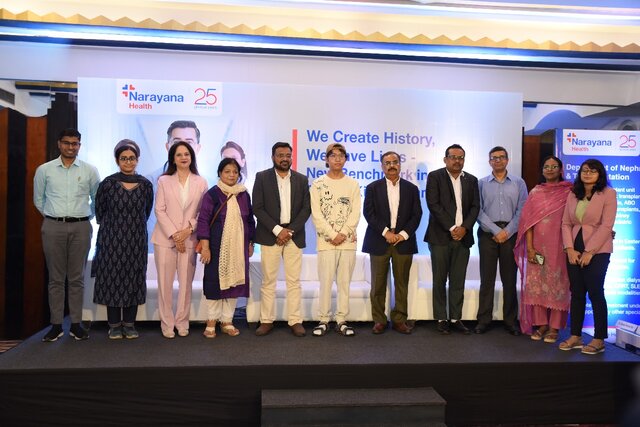
In a breakthrough in global medical science, doctors at Narayana RN Tagore Hospital, Mukundapur, have successfully performed a unique kidney transplant on a young man from Bhutan who suffers from severe Factor VII deficiency — an extremely rare genetic bleeding disorder affecting only one in five million people.
What makes the achievement historic is that the kidney donor was the patient’s own father, who is also a carrier of the same rare genetic condition. This is the first recorded transplant of its kind worldwide, making it a landmark moment in complex transplant medicine.
According to the hospital, the surgery posed high risk because even minor bleeding could have been life-threatening for the patient. The multidisciplinary team took extensive precautions and continuously monitored clotting functions throughout the procedure.
“This case tested the very limits of surgical precision, anaesthesia care and medical coordination,” said Dr. Deepak Shankar Ray, Chief Nephrologist and Transplant Lead. “Every step had to be perfectly aligned to protect the patient. The success of this case showcases exceptional teamwork and trust.”
Explaining the condition, Dr. Sisir Kumar Patra, Consultant – Haematology, said severe Factor VII deficiency requires highly delicate balance: too little clotting factor may trigger dangerous bleeding, while excess may cause clots. He confirmed that both the patient and his father are recovering well.
The young recipient briefly experienced paralysis due to a small clot post-surgery but recovered fully with supportive care. He is now stable with normal kidney function.
Expressing pride in the achievement, Narayana Health leadership said the milestone highlights India’s growing ability to handle the world’s most challenging transplant cases while ensuring ethical and safe outcomes for patients.
The case has attracted significant attention from medical experts globally due to its clinical rarity and the complexities involved.
